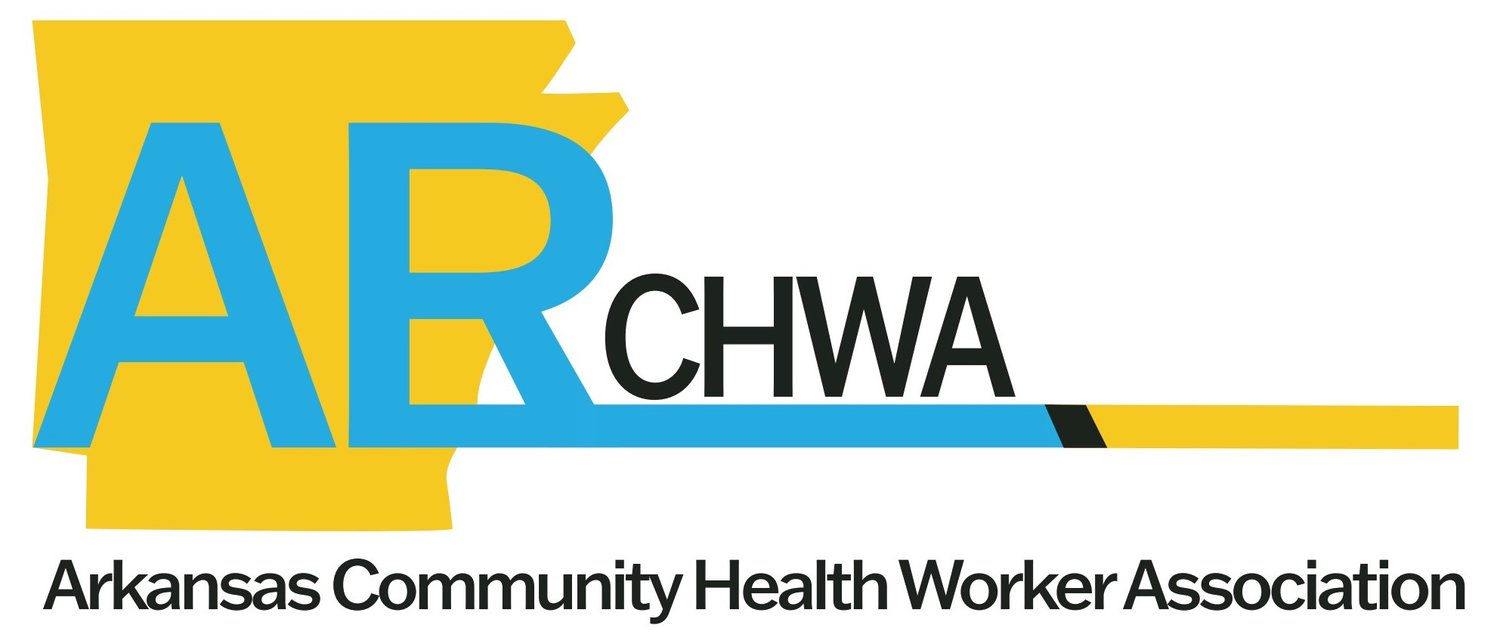Competency Overview
In Arkansas, Certified CHWs will learn about the 11 required competencies detailed in the Core Consensus (C3) Project. These competencies range from communication skills to knowledge base. Many state CHW certification training programs stem from the set list of competencies described in the C3 Project to ensure that the certified CHWs are properly prepared to support their communities in need.
Certified CHWs in Arkansas must be able to demonstrate the following core competencies and skills:
1) Communication Skills
Using language confidently
Using language in ways that engage and motivate
Communicating using plain and clear language
Communicating with empathy Listening actively
Preparing written communication including electronic communication
Documenting work
Communicating with the community
2) Interpersonal & Relationship Building Skills
Providing coaching and social support
Conducting self-management coaching
Using interviewing techniques (e.g., motivational interviewing)
Working as a team member
Managing conflict
Practicing cultural humility
Understanding the culture of institutions
3) Service Coordination and Navigation Skills
Coordinating care (includes identifying and accessing resources and overcoming barriers) Making appropriate referrals
Facilitating the development of an individual and/or group action plan and goal attainment Coordinating CHW activities with clinical and community services
Follow-up and tracking care and referral outcomes
4) Capacity Building Skills
Helping others to identify goals and develop to their fullest potential
Working in ways that increase individual and community empowerment
Networking, building community connections, and building coalitions Teaching self-advocacy skills
Conducting community organizing
5) Advocacy Skills
Contributing to policy development
Advocating for policy change
Speaking up for individuals and communities
6) Education and Facilitation Skills
Using empowering and learner-centered teaching techniques
Using a range of appropriate and effective educational techniques
Facilitating group discussions and decision-making Planning and conduct classes and presentations for a variety of groups
Seeking out appropriate information and responding to questions about pertinent topics Finding and sharing requested information Collaborating with other educators
Collecting and using information from and with community members
7) Individual and Community Assessment Skills
Participating in individual assessment through observation and active inquiry
Participating in community assessment through observation and active inquiry)
8) Outreach Skills
Conducting case-finding, and recruitment. and follow-up
Preparing and disseminating materials
Building and maintaining a current resource inventory
9) Professional Skills & Conduct
Setting goals and developing and following a work plan
Balancing priorities and managing time
Applying critical thinking techniques and problem-solving
Using pertinent technology
Pursuing continued education and lifelong learning opportunities
Maximizing personal safety while working in community and/or clinical setting
Observing ethical and legal standards (e.g. CHW Code of Ethics, Americans with Disabilities Act (ADA), Health Insurance Portability and Accountability Act (HIPAA))
Identifying situations for mandatory reporting and carry out reporting requirements
Participating in professional development of peer CHWs and in CHW networking groups
Setting boundaries and practicing self -care
11) Knowledge Base
Social determinants of health and related disparities
Pertinent health issues
Healthy lifestyles and self-care
Mental/behavioral health issues and their connection to physical health
Health behavior theories
Basic public health principles
Community served
United States health and social service system
10) Evaluation and Research Skills
Identify important concerns and conduct evaluation and research to better root causes
Apply the evidence–based practices of Community Based Participatory Research (CBPR) and Participatory Action Research (PAR)
Participate in evaluation and research processes
i) Identifying priority issues and evaluation/research questions
ii) Developing evaluation/research design and methods
iii) Data collection and interpretation iv) Sharing results and findings
v) Engaging stakeholders to take action on findings
